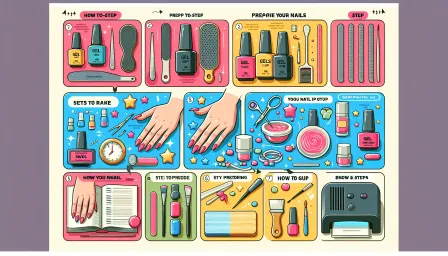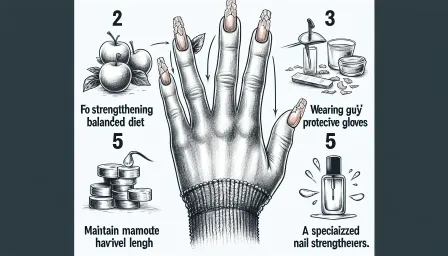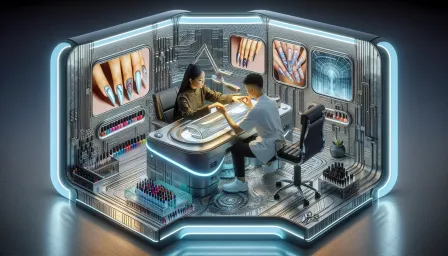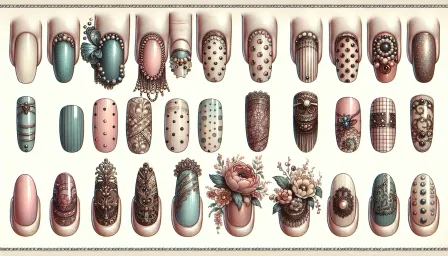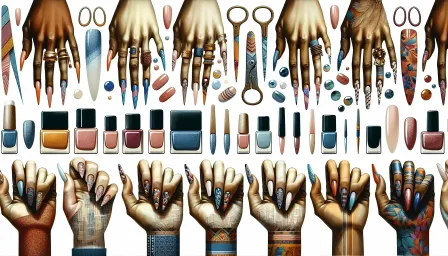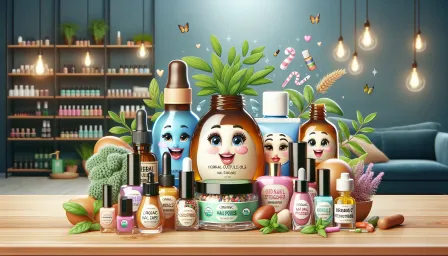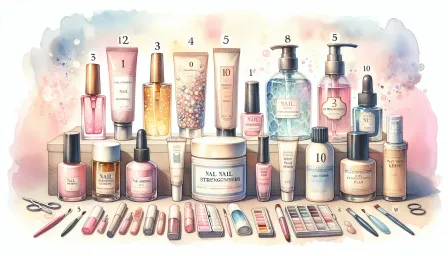Natural Nails vs Artificial Nails: Which Is Best for You?

Discover the pros and cons of natural nails vs artificial nails. Make an informed decision to keep your nails healthy and beautiful.
Nail beauty has become an essential part of personal grooming for many individuals today. Whether you're a fashion enthusiast, a professional, or someone who loves maintaining neat and stylish nails, the choice between natural nails and artificial nails can be challenging. This comprehensive guide delves into the pros and cons of both options to help you make an informed decision best suited to your lifestyle and needs.
The Basics: Understanding Natural and Artificial Nails
What Are Natural Nails?
Natural nails are the nails you are born with. They grow naturally from the nail matrix, which is located under the cuticle. With proper care, natural nails can be maintained to be strong, healthy, and aesthetically pleasing. Common methods for caring for natural nails include regular manicures, moisturizing, and the application of nail-strengthening products.
What Are Artificial Nails?
Artificial nails, also known as fake nails, are extensions or coverings placed over natural nails. They can be made from various materials including acrylic, gel, and silk wraps. The primary purposes of artificial nails are to provide length and enhance the visual appeal of natural nails. Different types of artificial nails offer varying aesthetics and durability.
Pros and Cons of Natural Nails
Advantages of Natural Nails
1. Healthier Nail Bed: Natural nails allow your nail bed to breathe, reducing the risk of infections and nail diseases. With less exposure to harsh chemicals, your nails remain healthy.
2. Cost-Effective: Maintaining natural nails is generally less expensive as it doesn't involve frequent salon visits or the purchase of specialized nail enhancements.
3. Low Maintenance: Natural nails require less upkeep than artificial nails. Regular trimming, filing, and moisturizing can keep them looking neat and healthy.
Disadvantages of Natural Nails
1. Prone to Damage: Natural nails are more susceptible to breaking, chipping, and splitting compared to artificial nails.
2. Length Limitations: Growing natural nails to a desired length can be challenging, especially if your nails are weak or brittle.
3. Limited Styling Options: While nail polish can enhance natural nails, the variety of styles and designs is limited compared to those achievable with artificial nails.
Pros and Cons of Artificial Nails
Advantages of Artificial Nails
1. Enhanced Aesthetics: Whether you prefer long, glamorous nails or intricate designs, artificial nails offer countless styling possibilities that can last for weeks.
2. Durability: Artificial nails are much stronger and more resistant to breakage than natural nails, making them ideal for those with weak or brittle nails.
3. Immediate Length: Artificial nails provide instant length and shape, making them an excellent option for special occasions or people who struggle to grow their natural nails.
Disadvantages of Artificial Nails
1. Maintenance and Cost: Maintaining artificial nails requires regular salon visits and can become quite costly over time. They also require more maintenance to keep them looking good.
2. Potential Damage: Improper application or removal of artificial nails can cause significant damage to the natural nail bed, leading to weakened nails.
3. Allergic Reactions: Some individuals may experience allergic reactions to the chemicals used in artificial nail products, such as acrylic or gel, resulting in irritation or infection.
Making Your Decision: Factors to Consider
Lifestyle and Daily Activities
Your lifestyle plays a crucial role in determining whether natural or artificial nails are best for you. If you engage in activities that are rough on your hands, such as sports or manual labor, natural nails might be a more practical choice. On the other hand, if you have a more sedentary lifestyle or work in an environment where aesthetics are important, artificial nails might be worth considering.
Time and Commitment
Consider how much time and effort you're willing to invest in your nails. Natural nails require minimal upkeep, whereas artificial nails demand regular maintenance. If you have a busy schedule, the convenience of natural nails might outweigh the aesthetic benefits of artificial nails.
Allergies and Sensitivities
It's essential to be aware of any allergies or sensitivities to the materials used in artificial nails. If you have a history of nail or skin allergies, it might be safer to stick to natural nails to avoid potential reactions.
Budget
Think about the financial aspect as well. While natural nails are more budget-friendly, you might be willing to spend more on artificial nails for their durability and style options. Weigh the long-term costs and decide what aligns with your financial situation.
Caring for Your Chosen Nails
Tips for Maintaining Natural Nails
1. Moisturize Regularly: Keep your nails and cuticles well-hydrated to prevent dryness and breakage. Use cuticle oil and hand creams daily.
2. Trim and File: Regularly trim and file your nails to maintain their shape and prevent splitting. Avoid using harsh nail files that can weaken your nails.
3. Protect Your Nails: Wear gloves when cleaning or doing activities that might damage your nails. This can help protect your nails from harsh chemicals and physical damage.
Tips for Maintaining Artificial Nails
1. Avoid Using Nails as Tools: Refrain from using your artificial nails to open cans, scratch surfaces, or perform similar tasks. This can help prevent lifting and breakage.
2. Keep Them Clean and Dry: Moisture can seep under artificial nails and cause issues, so ensure your nails remain clean and dry.
3. Regular Refills: To keep your artificial nails looking fresh and prevent lifting or damage, visit your nail technician every 2-3 weeks for refills and maintenance.
Conclusion
Both natural nails and artificial nails have their unique advantages and drawbacks. The best choice for you ultimately depends on your lifestyle, preferences, budget, and commitment to maintenance. By considering these factors, you can make an informed decision that aligns with your needs and keeps your nails looking beautiful and healthy.
Remember, whether you choose natural or artificial nails, proper care is essential to maintain their health and appearance. Regularly moisturize, protect, and maintain your nails to enjoy their full benefits.




